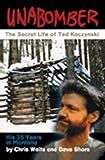
Seth Price art work
In , artist Seth Price’s new book from Leopard Press, reams of information on how to leave your life and escape into the vast cloud of America is culled from Internet sites aimed at helping everyone from abused spouses to off-the-grid hippies. Price happens to be neither, but is a brilliant manipulator and re-brander of mass production. His work is as much about getting found as it is about getting lost. His new book is not be confused with . Reena Spaulings talks with the New York artist.
REENA SPAULINGS: Your book, How to Disappear in America, just came out. How did you write it?
SETH PRICE: I was collecting these treatises on how to “go to ground”–how to ditch pursuers, wipe out your identity, start over.
They’ve been around for a while. I have one from the ’70s, this little mimeographed pamphlet. But the genre’s changed now that there are all kinds of perceived high-tech threats, like satellites and lasers.RS: When I think of this kind of information, I think of the Weather Underground radical activist organization, things like that.
The Unabomber
SP: Protest culture.
RS: The Unabomber.
SP: Yeah … The Unabomber is different from the Weather Underground. It’s the other end of the spectrum. It’s a more antigovernment, libertarian philosophy.
RS: This seems to come from an urge to get rid of yourself.
Escape to Nevada
SP: But there is a vision of actual escape. There’s one passage that mentions a particular area in Nevada, with longitude and latitude … supposedly it’s a good place to hide because it’s not patrolled by satellites as often.
RS: We were saying today that there is something very literary about all of your work. Writing has to do with codes and information, which is often embedded in your sculptural work. There’s a game of hide-and-seek, with information disappearing into your sculptures.
SP: Well, the book suggests that one way to disappear in America is to renounce the world of work, of gainful employment and documents and contracts. That’s often been associated with artists. But another popular way to disappear in America is to throw yourself into production. Those questions come up for artists. How much to produce, where to put it … Essentially, how far do you follow the course of turning into a small business? [laughs]
Renounce work
RS: It’s hard to know when production starts and stops for an artist. Looking at the Internet–is that production?
SP: You can write off your DSL as a tool, so the government says yes, it’s productive, it’s production. That way, everything disappears into work.
RS: There used to be this idea of the death of the author. But I’m wondering now if there is something to the disappearance of the author. Authors disappear all the time, like the storyteller in Gossip Girl.
SP: Oh, I thought that was real. Is it like The Hardy Boys or something?
RS: Yeah … The Hardy Boys [series] is written by a company, basically–by a kind of team on salary under the name of Franklin W. Dixon.
SP: That’s why I didn’t put my name on the cover.
RS: Yeah, and your name–it is your real name, but it could be a fictional name. It has an anonymous ring to it. So, your function here as an author is to repackage and redistribute. It’s definitely not the old idea of the author.
SP: But it does also come from a Word document, where I did a lot of editing and writing and-RS: And reading.
SP: Less reading than writing.
RS: You didn’t read it?
SP: Well, I… [doorbell rings, they laugh]

2 Responses
Hello, You have great info here, but my Q. is how can one begin the live off the grid life if you are disabled and on very limited income? Thanks for your time and for you site. Peace
It’s far easier to dissapear in the uk, just wear a track suit and stand in any town centre shouting “Big Issue” and no one will even acknowledge your existence